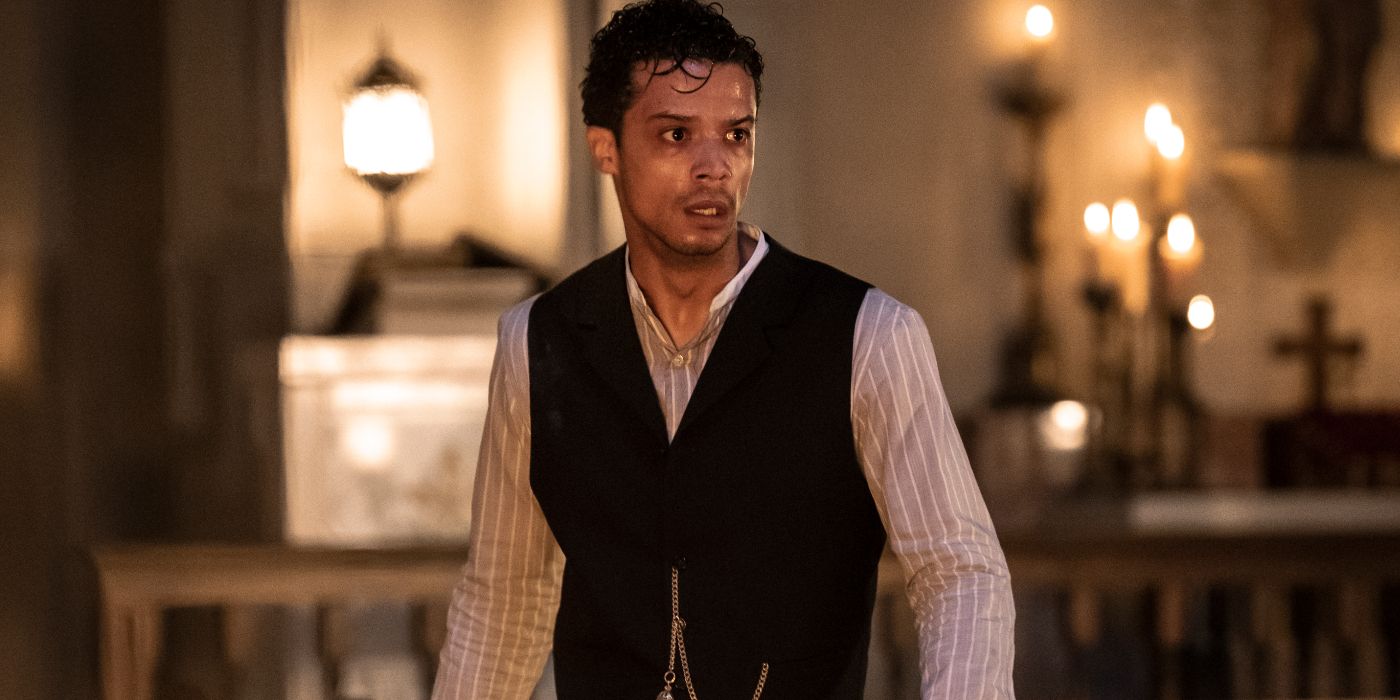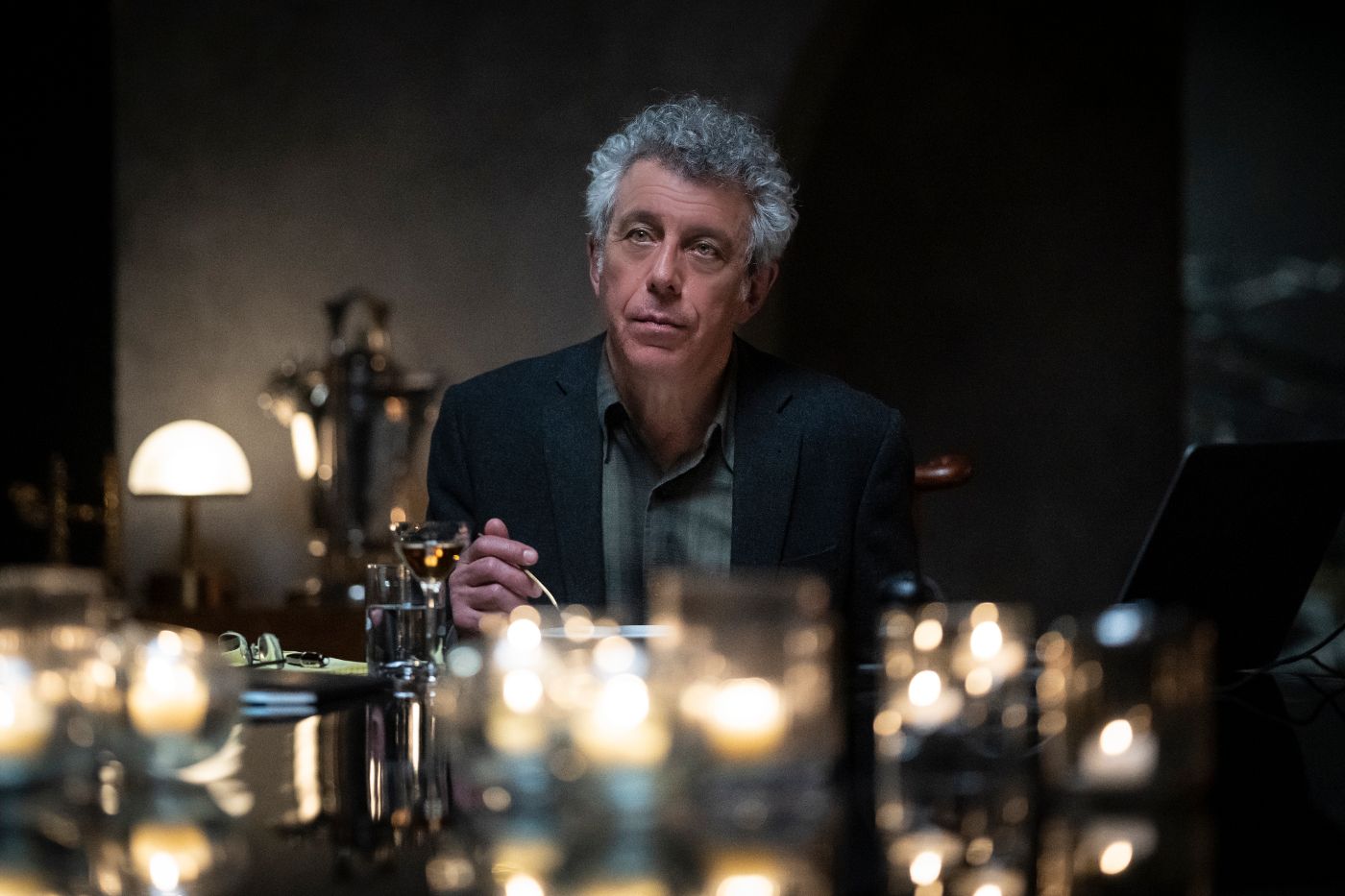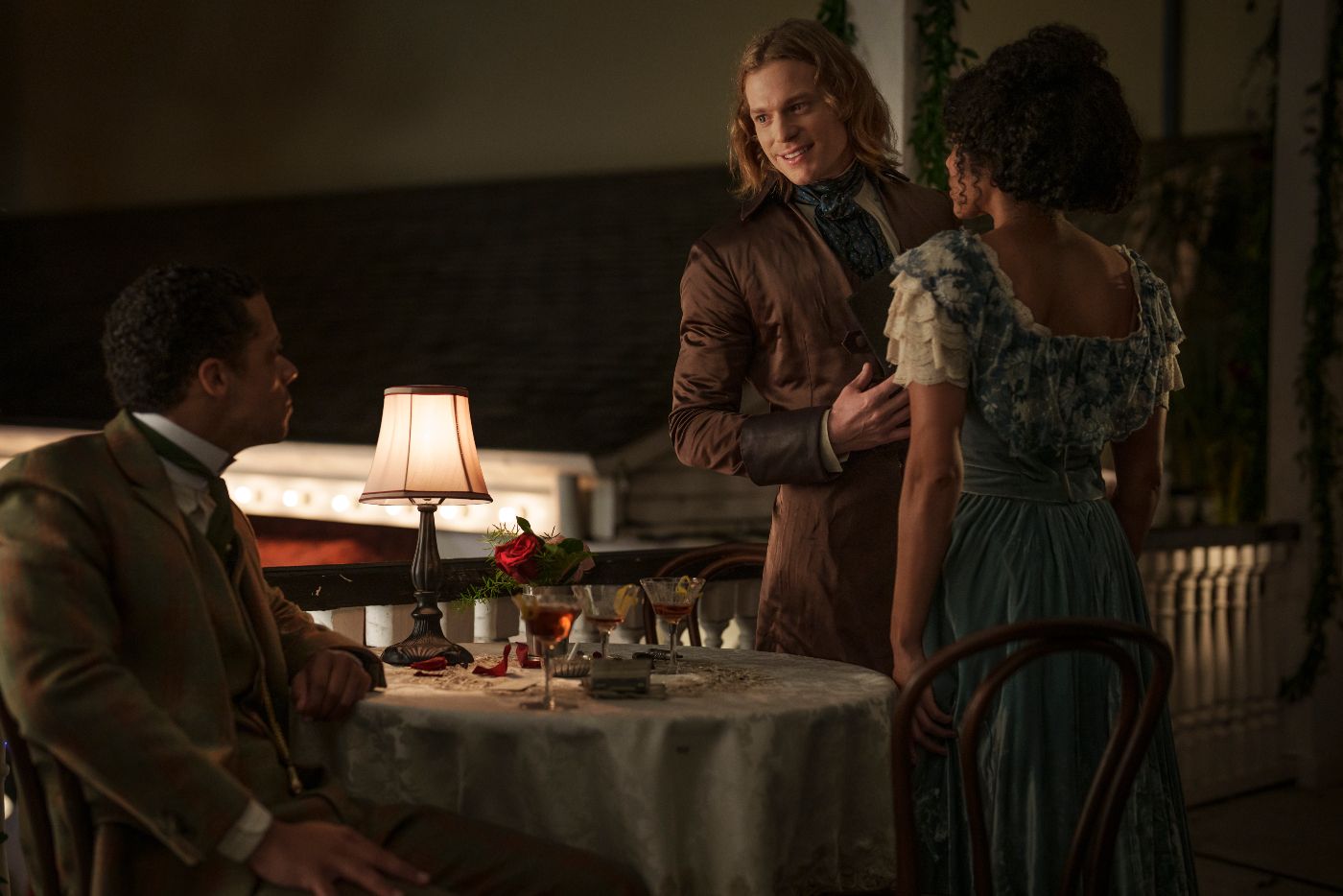Editor’s note: The following contains spoilers for Episode 1 of Anne Rice's Interview With the Vampire.We’ve all done it — sat through that first episode of a show that’s been on our television calendars for months, only to catch ourselves checking to see how much time is left. It’s not unlikely for a pilot episode to feel tonally awkward or even a bit boring. The main and supporting cast of characters and their respective dynamics need to be established, story seeds need to be planted, and exposition needs to be conveyed to the audience in some way, somehow. The pilot of the new AMC series Anne Rice's Interview With the Vampire, an adaptation of Rice's famous The Vampire Chronicles books from showrunner and executive producer Rolin Jones, is a refreshing outlier to typical drama pilots and serves as an elegant example of storytelling that not only completely satisfies the viewer but prepares them for what’s ahead.
Fans of Rice’s debut novel, as well as its 1994 film adaptation starring Tom Cruise and Brad Pitt, are likely well-aware of the basic premise of the show and therefore what to expect. Instead of dragging along the audience and teasing the sexy bloodshed that is to come, the first episode wastes no time in sinking its teeth into what everyone tuning in is undoubtedly dying to see. “In Throes of Increasing Wonder” drops us into the key storylines and establishes the two time periods at play: the pandemic-era present with renowned and jaded journalist Daniel Molloy (Eric Bogosian) and the self-assured vampire Louis de Pointe du Lac (Jacob Anderson), and 1910 New Orleans where Louis first encountered the sensual and mysterious Lestat de Lioncourt (Sam Reid) who got him into this bloody mess in the first place.
Louis' Relationship With Daniel in the Present
Daniel’s character and his journalistic career are cleverly and quickly summed up in a Masterclass-esque clip that he reluctantly watches from his home. In a matter of seconds, we learn that he’s won two Pulitzers, been fired from a number of papers, and eventually re-hired. As he puts it to his potential students and customers, “So to be clear here, I’m a goddamn reservoir of dos and don'ts.” That, plus the quick look we get at the bite mark-shaped scar on his neck, indicates that he has a bit of a bumpy past with vampires. The subtle urgency with which he reads Louis’ unexpected letter and assesses the set of tapes he received (smartly labeled 1973, the year they first met) helps speed the narrative along.
Through omniscient-style narration, Louis “reads” the fairly matter-of-fact letter he sent Daniel urging their reacquaintance roughly 50 years since the first attempted interview. “In a week’s time, in a setting of my choosing, we revisit the project boyish youth prevented us from finishing. 49 years and thousands of miles removed from the room we shared in San Francisco, I offer for your journalistic pleasures my full attention and my life story.” Such a pivotal moment like this could easily have been saved and dangled as a cliffhanger leading into Episode 2. Positioning this not even five minutes into the episode enables the audience to learn about the person Daniel has become since that fateful night in real-time with Louis.
This titular second interview would not only be riddled with revelations for Louis and Daniel, but for the viewers as well. This “long time no see” meet-up between the unlikely duo is a smart vehicle for exposition. Louis inquires about Daniel’s health concerns and Daniel tries to get to the bottom of how Louis is able to survive with the sun shining in through the window (“Where’s your coffin?”) Technology has improved, and the pandemic’s firm grip on society reminds them that time is a luxury, not a promise. (Okay, yes, Louis can live forever.) But above all, neither one of them was satisfied with how the first interview went. Both of them have clearly been through a number of transformative experiences that have made right now the right time to meet again. Having them chalk it up to needing “truth and reconciliation” stealthily lays the groundwork for the season without lingering in unnecessary filler scenes.
Louis' Relationship With Lestat in the Past
In the first episode, we're immersed in the gloominess and unpredictability of both eras. Pre-vampire bite Louis in 1910 is as deeply complex and tortured (if not more so) as he is after he turns. He might appear to be outwardly confident as the successful owner of brothels in Storyville (New Orleans’ red-light district) and as the charming, beloved son of a deceased wealthy man, but this could not be further from the truth. The harsh reality was that despite the slow steps toward equality, a Black man was definitely not going to be taken seriously, which Louis knew. “I was, admittedly, a rougher thing then. You had to be if you wanted to survive.” Louis’ explanation to Daniel worked as narration to the audience, who watched a calloused Louis do his best to control his threatened narrative by coolly dismissing others. This even includes his troubled younger brother Paul (Steven Norfleet), who repeatedly inserts himself where he doesn’t belong to speak the word of God. “Did I want to pull a knife on my brother? No. But, as I alluded to before, you couldn’t look weak,” because “you never knew who was watching.”
The episode also swiftly ignites a conversation about what is consuming Louis the most: his sexual identity. He reveals to Daniel that he frequented a certain high-end, predominantly White club to keep up his status and reputation. He’s forced to confront his sexual desires when he notices that a smooth-talking, chiseled-chinned vampire named Lestat de Lioncourt has the attention of the woman he typically is involved with (or at least likes to be seen with). Since Lestat has been observing Louis from afar, he knows what buttons to press. “Emasculation and admiration in equal measure,” Louis growls to Daniel. “I had come there for Lily, but I left thinking of only him.” And just like that, sexual tension fills the air. It wasn’t Lestat’s fangs that were piercing Louis (yet), but his optimistic and seductive eyes.
Louis and Lestat’s increasingly close relationship is showcased rather quickly when it could’ve easily been stretched out over the course of several episodes. We see the pair go shopping and enjoy the night sky on a bench where they share their innermost feelings. Lestat even comes over to meet Louis’ family, though he brushes off their intimate friendship and blames it on similar business interests. In fact, Louis bends the truth about their excursions. “The lie you told about leaving the opera house early. You were in there weeping when the curtain fell. Why hide that from your family?” Lestat asks. Right when the two seem like they are going their separate ways, Louis agrees to Lestat’s offer for a nightcap. This was all part of Lestat’s grand plan to seduce and consume part of Louis, and boy did it work.
Showing such a romantic and grand scene between the two leads in the pilot is an incredibly bold creative decision that continues to heighten the story. Because of this sexual experience and Lestat’s ability to get inside Louis’ thoughts, Louis skips out on his brother’s funeral services to grieve on his own. Ashamed of his behaviors and the lies he tells himself, he confesses to a priest with a shaky and uncertain voice that he needs help. The episode hurtles toward its epic ending once Lestat bursts into the church and sucks the blood and life from the priest. “What rage you must feel as you choke on your sorrow,” Lestat wonders aloud to Louis in his soap opera-style monologue. “The first time I laid eyes on you, your beautiful face, I saw that sorrow… I can take away that sorrow, Louis.” Louis even admits to Daniel that he can’t articulate how Lestat’s words managed to cut into him. “For the first time in my life, I was seen.” He succumbs to his desire and agrees to be turned into a vampire, and Lestat does so with pleasure.
There's a lot of pressure riding on that first impression. A pilot could make or break whether we decide to stick with the show, and given the overwhelming amount of content being handed to us every day, it’s even more tempting to jump ship before we give the characters and story a chance to find their footing. Even though it was just the beginning, the pilot felt like a completely satisfying journey. We've already witnessed Louis’s racial and sexual identity crisis, met his family, and seen a significant portion of his interview with Daniel. Instead of falling into the “will they won’t they” trap, Louis and Lestat almost instantly get together and Lestat turns him into a fellow with fangs. Rather than dragging along the audience and teasing the sexy bloodshed that is to come, the first episode effectively and efficiently submerges you into the intimate and untameable world that awaits. By seamlessly executing all of this exposition in the pilot, the first season of Interview With the Vampire has a chance to significantly explore storylines and characters we have yet to see on screen.



